
BOMA ON CAPITOL HILL
In 2018, BOMA International achieved notable victories and saw significant movement on many top legislative priorities. Following on the heels of key 2017 wins, including the passage of tax reform that preserved many important provisions favorable to commercial real estate, the year got off to a strong start. Despite the gridlock in Congress, BOMA was able to work with members on both sides of the aisle to advance a legislative agenda that benefits the commercial real estate industry.
PRESERVING ENERGY STAR®
BOMA played a pivotal role in ensuring that the U.S. Environmental Protection Agency’s ENERGY STAR® program was preserved for 2019 through the appropriations process. The ENERGY STAR program has long enjoyed broad, bipartisan support. In 2018, President Trump called for transforming ENERGY STAR into a user-fee based program rather than a free resource, which many feared would discourage participation. This came only a year after ENERGY STAR survived being completely eliminated by the Trump administration, something BOMA International and other real estate groups successfully prevented. Throughout 2018, BOMA met with key lawmakers and decision-makers to emphasize the importance of this highly effective and efficient government program to the commercial real estate industry. Not only is ENERGY STAR’s Portfolio Manager® embedded in industry-wide operational practices, but it also is used as a part of the BOMA 360 Performance Program application process and The Outstanding Building of the Year® (TOBY®) Awards judging criteria. As a result of these advocacy efforts, ENERGY STAR continues as a free resource in 2019.
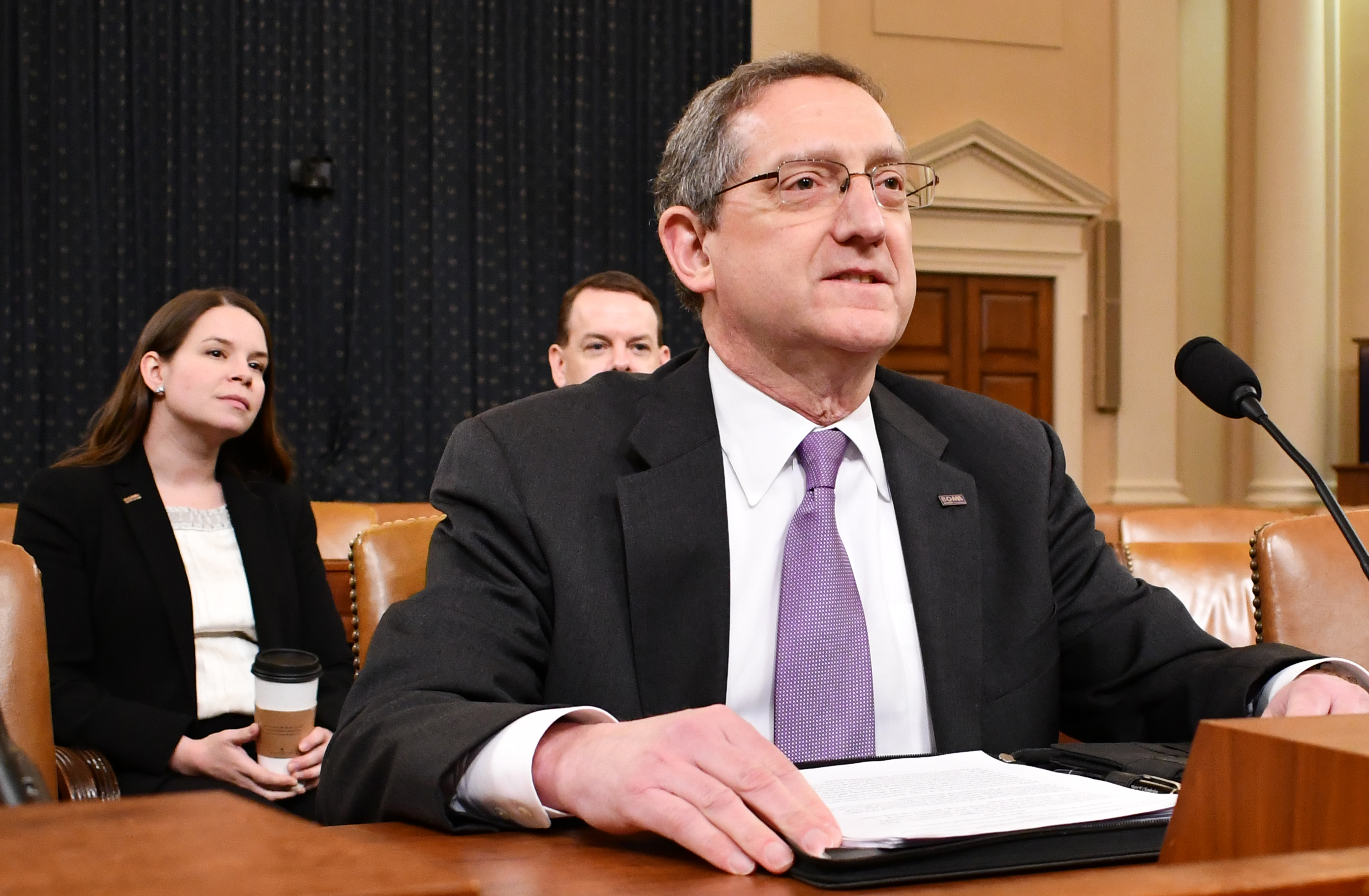
BOMA International President Henry Chamberlain testifies before the House Ways & Means Committee about the importance of 179D
EXTENDING 179D
In March, BOMA International President Henry Chamberlain testified on behalf of the association before the U.S. House of Representatives Ways & Means Committee about the importance of the Energy-Efficient Commercial Buildings Tax Deduction, commonly referred to as 179D after its U.S. Internal Revenue Code section number. 179D is a vital component in encouraging buildings to adopt and upgrade to more energy-efficient systems and is the sole federal energy efficiency incentive for commercial buildings. BOMA’s advocacy team will continue to build on these efforts and push for 179D to be extended long term or enacted permanently in 2019.
SUPPORTING ADA LAWSUIT REFORM
BOMA International has long fought for legislation to curb the practice of so-called "drive-by" lawsuits based on violations of the Americans with Disabilities Act (ADA), which often are designed to result in a quick settlement for the plaintiff rather than to remedy the alleged ADA infraction or increase accessibility. In February 2018, BOMA achieved a major legislative win when the House of Representatives passed H.R. 620, the ADA Education and Reform Act. This bill would have imposed a "notice and cure" period to allow building owners and other businesses the chance to remedy an accessibility issue before the commencement of litigation. While the bill did not move forward in the U.S. Senate, BOMA has been engaging with members in the Senate on both sides of the aisle to find a commonsense solution that will help to protect our members while still upholding ADA protections.
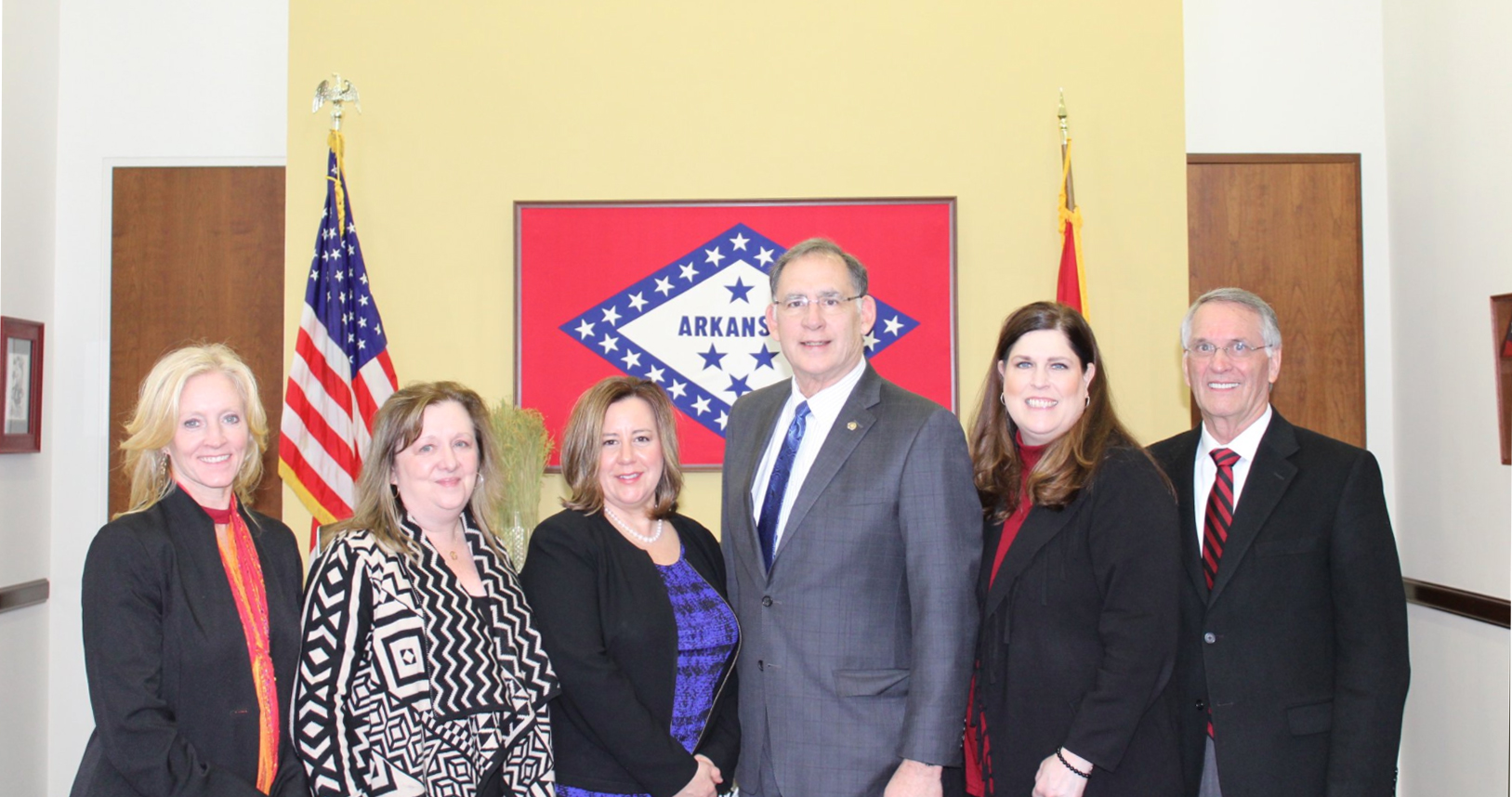
BOMA/Greater Little Rock members meet with Sen John Boozeman (R-Ark.).
2019 LEGISLATIVE PRIORITIES
Qualified Improvement Property. Working with Congress to correct the QIP error will facilitate the creation of new jobs and boost local economies.
Energy Efficiency Tax Deduction. Building on efforts in 2018, BOMA will push to get the vital 179D incentive extended long term or enacted permanently in 2019.
Americans with Disabilities Act (ADA) Lawsuit Reform. BOMA International will work with legislators from both political parties to push for commonsense reforms that eliminate frivolous lawsuits while increasing accessibility.
Infrastructure Investment. The commercial real estate industry relies on strong infrastructure. BOMA will work to educate Congress on the need for increased funding mechanisms to keep up with the country’s changing infrastructure needs.
Terrorism Risk Insurance Act (TRIA). TRIA creates a federal backstop for insurance claims related to acts of terrorism; currently, it is scheduled to expire in 2020, after being renewed in 2015 for five years. BOMA International will be working to ensure TRIA is extended before it expires so there is no gap in coverage.
FIXING QUALIFIED IMPROVEMENT PROPERTY
The comprehensive tax bill that passed Congress in December of 2017, the Tax Cuts and Jobs Act, included specific provisions culminating in the largest tax win for commercial real estate in decades. However, there was a drafting error that increased the depreciation period of "qualified improvement property" (QIP)—formerly referred to as leasehold depreciation—from 15 to 39 years. There has been progress in Congress on this issue, but partisan gridlock prevented any resolution on the issue in 2018. BOMA will continue to lobby lawmakers in 2019 to ensure this error is fixed.
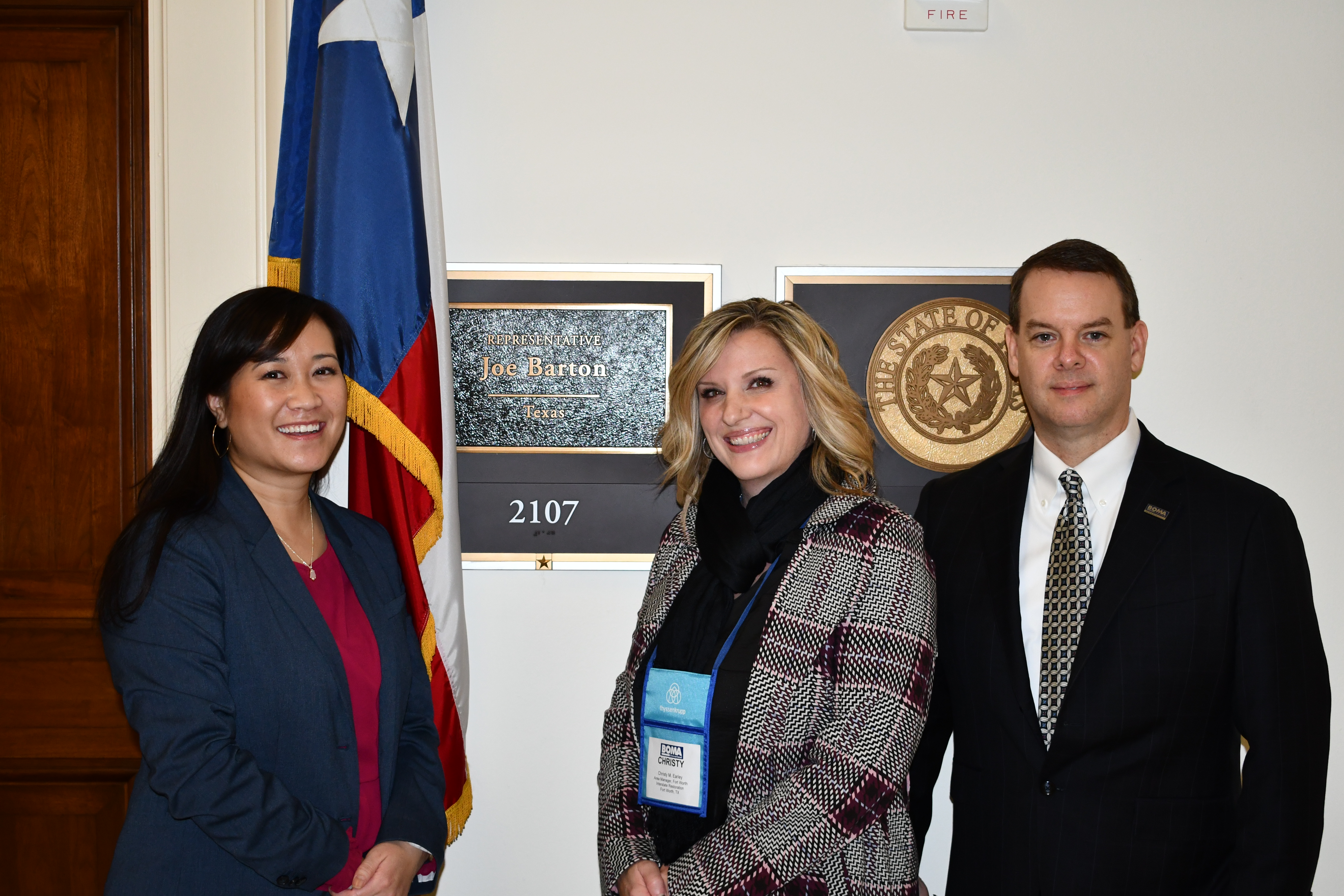
Members from BOMA/Fort Worth pose with BOMA International Vice President of Advocacy and Building Codes John Bryant (right) outside Rep. Joe Barton's (R-Texas) office.
IN YOUR DEFENSE
BOMA International’s Industry Defense Fund (IDF) is instrumental in ensuring that adequate resources are available at the federal, state and local levels to address wide-ranging issues that can impact BOMA members. In 2018, more than $115,000 was awarded from the fund. Below are just a few of the projects supported by the IDF:
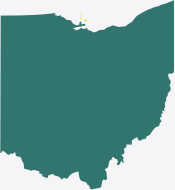
BOMA/Greater Cleveland. Conducted a successful effort to counter a ruling by the Public Utilities Commission of Ohio that would have expanded the commission’s authority and strictly regulated commercial building owners from submetering utility fees to tenants. In a case that could have implications for many parts of the country, the commission reversed course and excluded commercial real estate from its original ruling.

BOMA/Pittsburgh. Provided additional support to an ongoing fight against the city’s Safe & Secure Building Act, which would require many of the city’s building owners to provide and pay for continuing education training for a variety of building personnel, while also specifying who could provide the training. BOMA/Pittsburgh had successfully opposed the measure in the lower courts and needed to make a final argument before the Pennsylvania Supreme Court. The ruling is still pending.

BOMA/San Francisco. Supported a campaign against a ballot measure to massively increase the city’s commercial rent tax from 0.3 percent to 3.8 percent. The measure narrowly passed, but the campaign generated valuable information on how to counter policies that target the industry to fund unrelated city initiatives.
IN THE STATES
In partnership with BOMA local associations and state coalitions, BOMA International’s advocacy team supports the industry in state legislatures and city halls across the United States. Recent issue trends at the state and local level include:
-
New Taxes. As many states continue to face budget deficits, proposals of new sales taxes on services have become a recurring challenge. While BOMA has successfully communicated that this is not a sustainable solution for balancing budgets, the need to be vigilant continues. At the local level, commercial real estate has been targeted as a revenue source to fund unrelated social services programs.
-
Property Access Issues. A range of issues related to property access has been simultaneously proliferating across the country, including service animals, dockless bike and scooter services and drones. BOMA will continue to track and provide guidance on these issues.
-
Sustainability Mandates. More than 20 U.S. cities have enacted mandatory energy benchmarking ordinances. BOMA strongly supports voluntary benchmarking efforts, but unfunded mandates and compulsory public disclosure are often detrimental. A new wave of sustainability-related mandates is beginning to appear, such as the green roof requirement in Denver. Communities would be better served by local governments holding discussions and finding common ground with the private sector.
UP TO CODE
BOMA International continues to serve as the only commercial real estate association with an active building codes advocacy program, representing the interests of the industry in front of the International Code Council (ICC). Last year heavily focused on the ICC’s 2021 I-Codes development process. BOMA identified 155 proposed code changes that most notably affected commercial real estate and prepared positions related to a variety of code issues, including those pertaining to fire, fuel, commercial mechanical systems and plumbing, property maintenance, private sewage, wildland-urban interface and zoning. BOMA’s codes team testified nearly 50 times during the Public Comment Hearings and then created a voting guide for members to share with their local code officials.
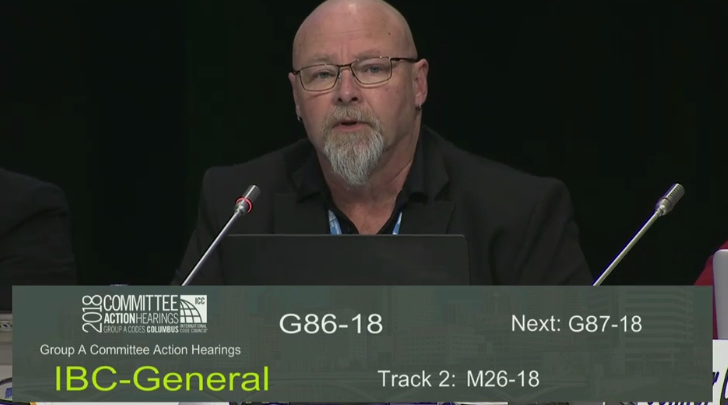
John Catlett, BOMA International's senior codes consultant, represents the commercial real estate industry's interests during ICC hearings.
A remarkable 74 percent of BOMA’s codes positions were successful.
W2 CHALLENGE
Closely aligned with BOMA’s advocacy work promoting sustainability generally and ENERGY STAR specifically, BOMA International officially launched the W2 Challenge at the start of 2018 with the support of BOMA International Cornerstone Partner Yardi and BOMA local associations. The two-year program asks participants to benchmark water consumption and waste output in ENERGY STAR Portfolio Manager. In return, participants receive progress reports, helpful tips and additional resources—as well as recognition opportunities. More than 2,000 buildings have signed up for the challenge and benchmarking data for more than 400 million square feet of commercial space has been shared in Portfolio Manager. In just its first year, the W2 Challenge has elevated the industry’s sustainability efforts to the next level.
BOMAPAC AT A GLANCE
BOMAPAC is BOMA International’s political action committee. Contributions from BOMA members across the United States help to ensure that BOMA International has the power and resources to support members of Congress who have demonstrated their leadership and commitment to commercial real estate industry issues. 2018 was a record year for BOMAPAC fundraising, thanks to the support of BOMA members and BOMA local associations.

Many BOMA local associations held BOMAPAC fundraisers in 2018, including a golf tournament hosted by BOMA/Oakland-East Bay.
$82,000 TOTAL AMOUNT RAISED IN 2018
76% INCREASE IN NUMBER OF CONTRIBUTIONS
1,370 TOTAL CONTRIBUTORS
$60 AVERAGE CONTRIBUTION
87% OF CONTRIBUTIONS UNDER $200
DID YOU KNOW?
While corporations are not eligible to contribute to BOMAPAC, they can contribute to BOMA’s PAC Administrative Fund. This fund covers the operational costs of running a PAC and PAC-related fundraising activities.
This article was originally published in the January/February 2019 issue of BOMA Magazine.